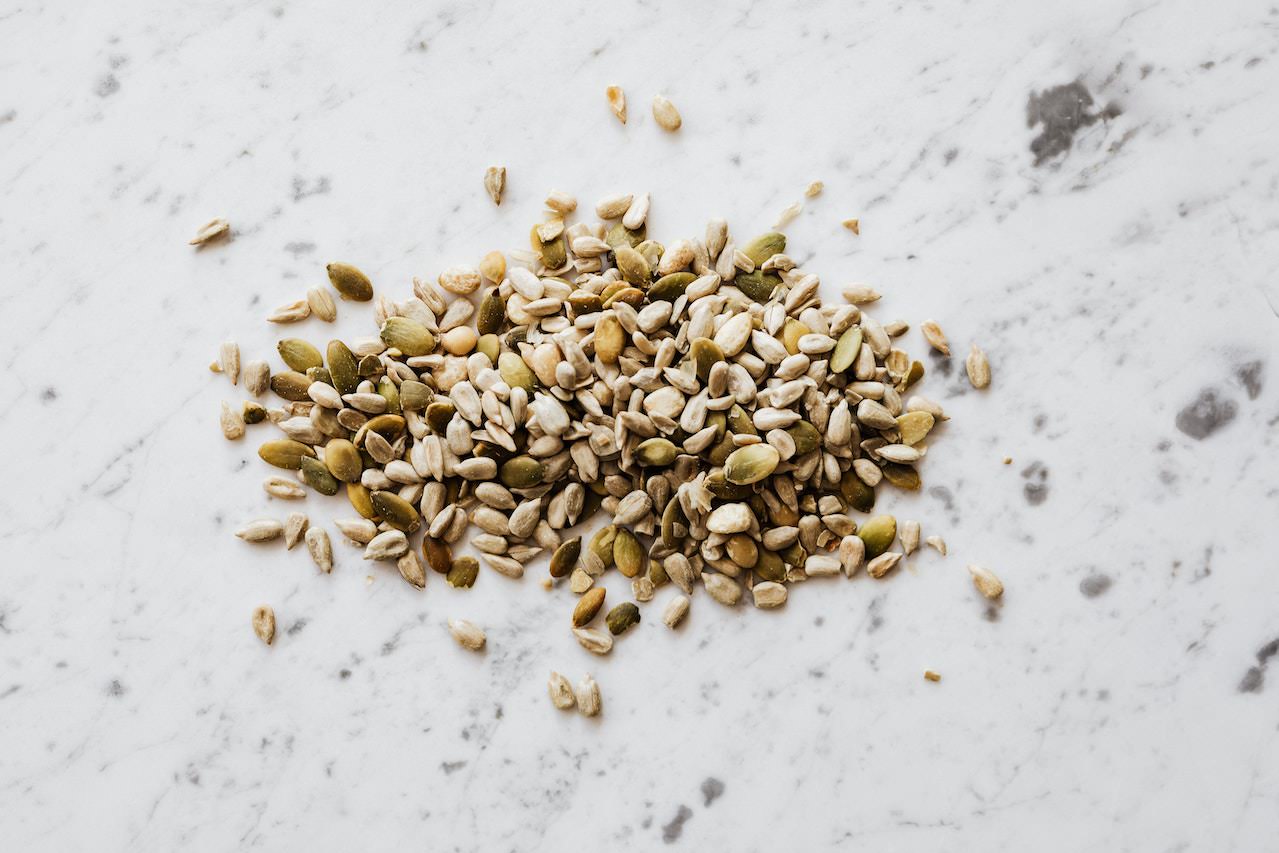Table of Contents
As the global population continues to increase, it is more important than ever to find ways to feed our growing population sustainably, hence today’s topic of a plant-based diet and sustainability.
One way we can do this is by eating a plant-based diet. Plant-based eating reduces our carbon footprint but also helps support sustainable farming practices that, in turn, help protect the environment.
Let’s examine how a plant-based diet can benefit us and the planet.
Plant-Based Diet and Sustainability

Benefits of Eating a Plant-Based Diet
Eating a plant-based diet has numerous benefits, including reducing your risk of chronic illnesses such as cardiovascular disease and type 2 diabetes.
A plant-based diet can also help reduce your environmental impact because raising animals for food requires significant resources, emits large amounts of greenhouse gases, and contributes to land degradation and water pollution.
Additionally, eating plants instead of animals spares them from cruelty and suffering in factory farms.
The Effect of Plant-Based Diets on Greenhouse Gas Emissions
Regarding greenhouse gas emissions, research shows that plant-based diets have a significantly lower environmental impact than those heavy in animal products.
Animal agriculture has been linked to higher levels of carbon dioxide, methane, and nitrous oxide — all of which contribute to global warming and climate change.
By reducing the number of animal products in your diet and replacing them with plant-based sources such as legumes, nuts, and seeds, you can reduce your contribution to climate change.
How Plant-Based Diets Help Combat Climate Change
In addition to reducing greenhouse gases, plant-based diets also help reduce land use for farming and ranching.
According to the Food and Agriculture Organization (FAO), livestock production accounts for 70 percent of all agricultural land use worldwide — which means that if we switched to more plant-based diets, there would be less pressure on land resources needed for food production.
This could significantly impact global climate change as less land would be needed for farming and ranching activities — which currently account for 10–12 percent of all human-caused greenhouse gas emissions.
How to Eat a Sustainably and Affordably
Eating sustainably doesn’t have to be expensive or time-consuming.
When grocery shopping, opt for seasonal produce whenever possible, as seasonal produce will generally be cheaper than out-of-season options due to lower transportation costs.
Consider buying organic produce when available — organic fruits and vegetables are grown without synthetic pesticides and fertilizers which helps protect soil health and reduce water contamination from runoff.
If organic items are out of reach financially, rinse conventional produce with vinegar before consuming to help remove any pesticide residue on the fruit or vegetable’s skin or surface area. Finally, try shopping at local farmers’ markets or joining Community Supported Agriculture (CSA) programs for even fresher options!
Making Delicious Plant-Based Meals
Making delicious plant-based meals doesn’t have to be complicated.
Start by incorporating some simple swaps into your dishes, like using beans or lentils instead of meat in tacos or chili recipes; using coconut milk instead of cow’s milk in smoothies; swapping olive oil for butter when baking; adding avocado slices onto salads instead of cheese; etc.
The possibilities are endless.
Be sure to experiment with different ingredients until you find flavors you love so that making plant-based meals becomes second nature.
A Guide to Plant-Based Protein Sources

For many environmentalists, “going green” extends beyond the environment and into their diets. Plant-based diets are becoming increasingly popular as they can help reduce our carbon footprint and improve our overall health.
But a plant-based diet doesn’t necessarily mean you have to give up on getting enough protein — it just means you have to get creative with your sources.
Let’s dive in and learn more about plant-based proteins, where to find them, and how to incorporate them into your meals.
What Are Plant-Based Proteins?
Plant-based proteins are proteins derived from plants rather than animals. This includes legumes like beans and lentils, nuts, seeds, and grains like quinoa.
Additionally, they can be found in certain vegetables, such as spinach or broccoli.
When consumed in sufficient quantities, plant-based proteins provide all the essential amino acids our bodies need without the additional saturated fat that comes with animal products.
Benefits of Plant-Based Proteins
There are several benefits to incorporating more plant-based proteins into your diet.
For one thing, they tend to be higher in fiber than animal products which is excellent for digestion. They can also help reduce inflammation since many contain antioxidants that help support a healthy immune system.
Plus, since most plant-based proteins are low in saturated fats, they can help lower cholesterol levels.
Finally, eating more plant-based proteins can also help reduce your carbon footprint by decreasing your reliance on animal products that require more energy to produce than plants.
How to Incorporate More Plant-Based Proteins into Your Meals
There are plenty of ways to incorporate more plant-based proteins into your daily meals.
Many plant-based protein powders make it easy to add extra protein into smoothies or shakes, while nuts and seeds make great snacks or toppings for salads and other dishes. Legumes such as beans or lentils are also an excellent source of protein when added to soups or stews or used instead of ground beef in tacos or burritos.
You can also read our review of the best vegan blenders to make a deliciously thick plant-based smoothie.
Finally, quinoa is an incredibly versatile grain packed with protein — it can be cooked like oatmeal for breakfast or added to salads for lunch or dinner.
Conclusion
Eating a plant-based diet is beneficial for both our health and the environment. There are so many easy ways to switch up our diets while enjoying delicious meals — it just takes some creativity.
By opting for seasonal produce when available and supporting local farmers’ markets, we can make great strides towards living more sustainably while still eating well at the same time.
A sustainable future begins with us — make every meal count.
Frequently Asked Questions
Is a plant-based diet really sustainable?
Plant-based diets have been touted as a sustainable and environmentally-friendly way of eating. However, new research shows that not all plant-based dietary patterns are created equal regarding sustainability.
A study led by Harvard T.H. Chan School of Health and Brigham and Women’s Hospital found that healthier plant-based diets, rich in whole grains and vegetables, positively impact the environment.
On the other hand, a diet high in refined grains and sugar-sweetened beverages requires more cropland and fertilizer, which has negative implications for sustainability.
It is essential to consider the quality of the plant-based foods we consume to ensure a sustainable diet.
Are plant-based foods more sustainable?
It’s difficult to ignore our eating habits’ impact on the planet. The meat and dairy industry significantly contributes to greenhouse gas emissions, water pollution, and deforestation.
As individuals, we can make a positive change by adopting a plant-based diet. Research shows that even eating meat and dairy-free for just one day a week can make a considerable impact, offsetting carbon emissions equivalent to taking 7.6 million cars off the road.
Plant-based foods are not only a more sustainable option, but they can also be incredibly delicious and nutritious, making it easier to switch.

